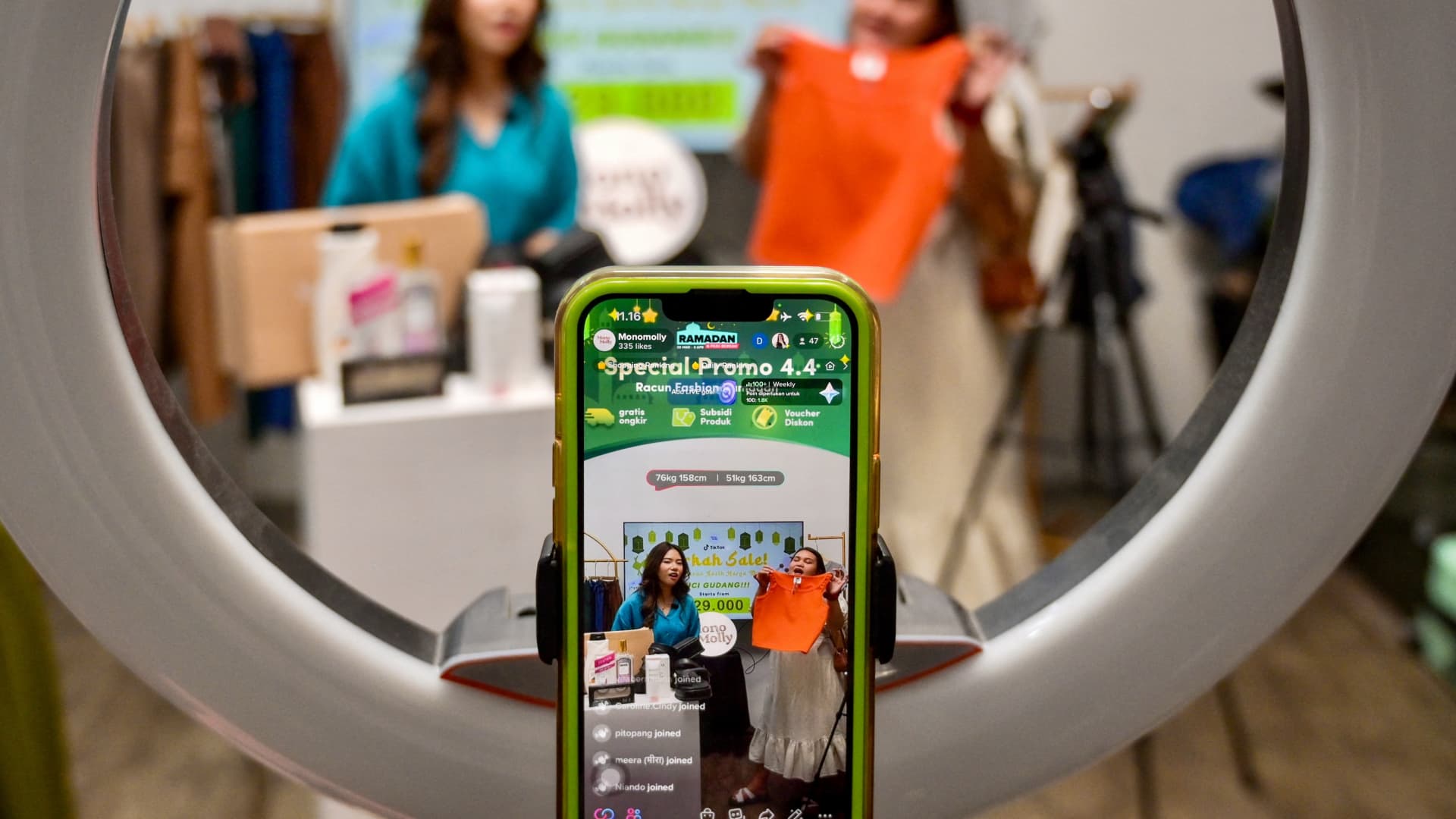Two sellers offering merchandise for sale through a TikTok livestream.
Bay Ismoyo | Afp | Getty Images
Indonesia’s ministry of trade said Tuesday it is working to further regulate e-commerce, adding that the country does not allow transactions on social media platforms.
“One of the things that is regulated is that the government only allows social media to be used to facilitate promotions, not for transactions,” the ministry said in an official release.
This means that users in Indonesia cannot buy or sell products and services on TikTok and Facebook.
The government said it will also bar social media companies from doubling as e-commerce platforms to prevent misuse of public data.
In a media conference Monday, Minister of Trade Zulkifli Hasan said that “the connection [between social media and e-commerce] must be separated so that the algorithm is not all controlled” and this “prevents the use of personal data” for business purposes.
Indonesia also said it would also regulate which overseas goods can be sold, adding these products would receive the same treatment as offline domestic goods. The move comes as foreign goods become increasingly available in Indonesia through social media platforms.
On Saturday, Indonesia’s President Joko Widodo called for social media regulations, citing the platforms’ impacts on local businesses and the economy.
“Because we know it affects MSMEs, small businesses, micro-enterprises, and also the market. There are markets where sales have started to decline due to the influx,” he said a statement.
A blow to TikTok
Indonesia’s regulations are set to devastate TikTok’s e-commerce ambitions in the country.
Indonesia is TikTok’s second-largest market with 113 million users, just behind the U.S. which has 116.5 million TikTok users, according to DataReportal.
In June, TikTok’s CEO Shou Zi Chew said that the app is “going to invest billions of dollars in Indonesia and Southeast Asia over the next few years.”
“Social commerce was born to solve a real world problem for local traditional small sellers, by matching them with local creators who can help drive traffic to their online shops,” a TikTok spokesperson said after Indonesia’s move.
“While we respect local laws and regulations, we hope that the regulations take into account its impact on the livelihoods of more than 6 million sellers and close to 7 million affiliate creators who use TikTok Shop,” they said.
Citi said in a Tuesday report that the move benefits competitor Shopee, the e-commerce arm of Sea Limited, and Indonesia’s domestic players.
“We view this as a positive development for traditional e-commerce players in Indonesia — particularly Sea Ltd., given the latest competitive intensity between TikTok and Shopee,” the global investment bank said in its report.
“Depending on the timing of the implementation and the transition process to the possible alternative app, in our view, any disruptions that TikTok sellers experience during the transition will likely be beneficial to Shopee and other traditional e-commerce platforms in the coming months,” said Citi.
Image and article originally from www.cnbc.com. Read the original article here.

